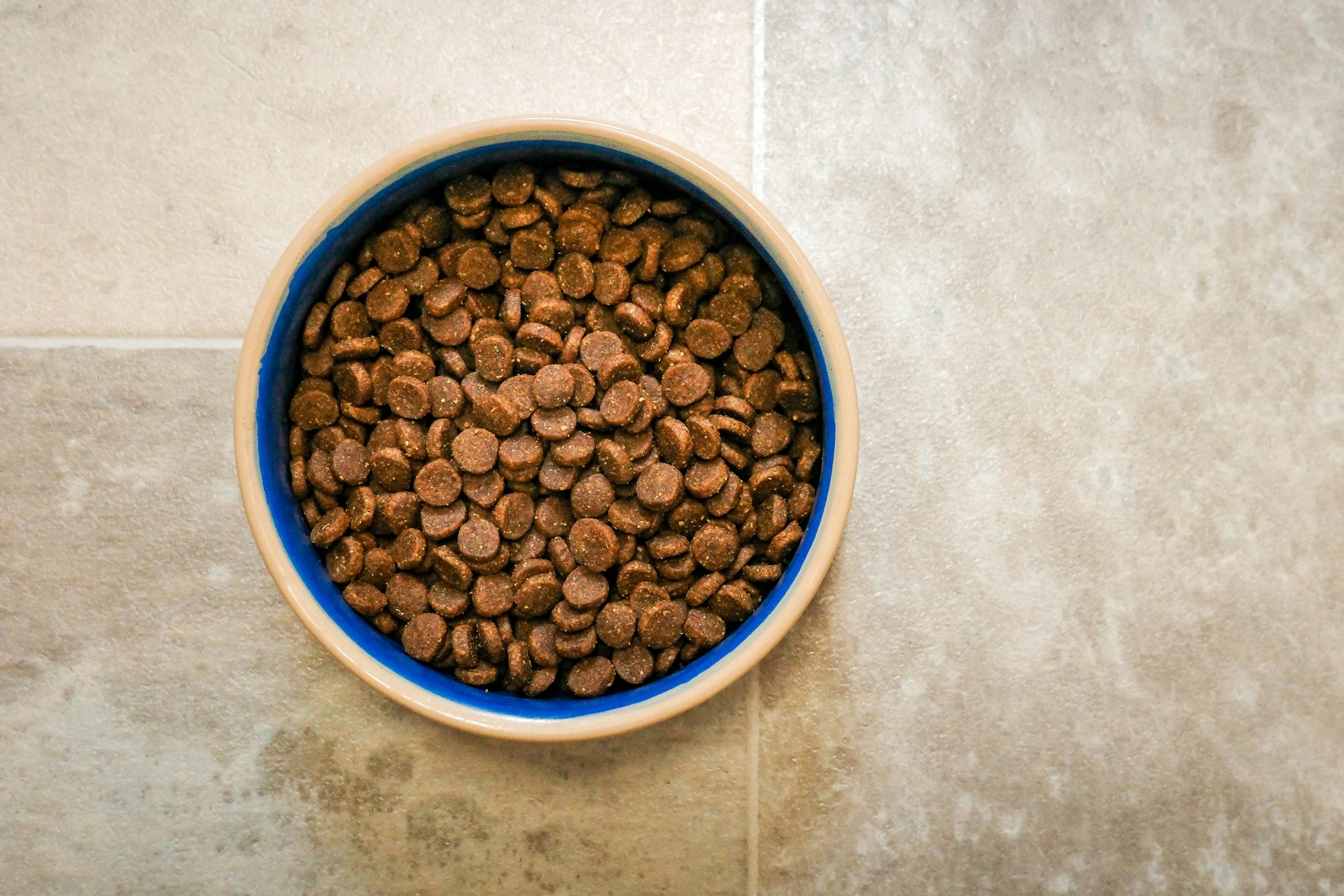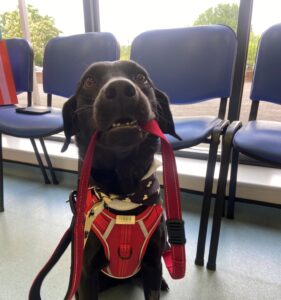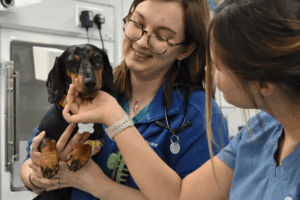It may surprise you to hear that 65% of dogs and 39% of cats in the UK are either overweight or obese – something that is definitely a growing concern.
In fact, a recent study found the average dog is being overfed by 54,000 calories a year – that’s the equivalent of a human consuming 402 burgers!
To help you keep your pet a healthy weight, we consulted with the team at St Kitts to put together their top tips. It’s important to note that your pet’s specific breed characteristics will need to be considered individually, as all will have varying body types.
Signs your pet is overweight
Can’t feel their ribs
A subtle change to your pet’s physical appearance can be a sign your pet is becoming overweight. To check, see if you can easily feel your pet’s ribs without pressing too hard. If you can’t feel them, this may mean your pet is overweight.
No waistline
Look at your pet – if there is no distinct waist or if it appears to be bulging, your pet may be carrying excess weight. Having a noticeable waist, between the ribs and hips, is a healthy sign.
No abdominal tuck
A slight tuck in the abdomen is normal for many pets. If there is no discernible tuck or if the belly hangs down, it could indicate excess weight.
Lethargic
If your pet seems to be lacking in energy and unwilling to play or explore, it could be a sign that excess weight is causing them discomfort when actively moving about.
Mobility issues
If your pet is having difficulty moving around, jumping or exercising, it might be due to excess weight. Observe their activity level and consult your vet if there are any concerns.
How to keep your pet a healthy weight
Balanced diet
Feed your pet a well-balanced and nutritional diet, suitable for their age, size and breed. You can always ask your vet for advice on the appropriate type and amount of food for your pet.
Track weight
Keep track of your pet’s weight over time. Sudden or consistent weight gain could be a sign of an issue. Regular visits to your vet for weight checks can help monitor this.
Monitor diet
Be observant – keep an eye on what your pet is eating, as it might be more than you think! If you make any changes to their diet, check their weight and monitor their progress.
Avoid feeding leftovers
Be mindful that leftovers aren’t really meant for pets, especially ones with a high fat content; It can be easy to pile on the pounds when regularly feeding them bits and pieces. Eating inappropriate food can also lead to the development of other conditions, such as pancreatitis.
Reduce calories
A new lower calorie diet could be key to helping your pet lose weight. Be sure to check with your vet before introducing a new diet to make sure it’s appropriate.
Limit treats
Treats are great as a reward, but they should be just that, a treat, not part of your pet’s regular diet. Take care to only offer treats intended for pets and opt for healthier alternatives to keep the calories under check.
Increase exercise
Regular exercise is an important part of staying fit and healthy. It’s reported that 44% of dog walks are less than 30 minutes, with 13% of dogs not being walked every day.
If you’ve noticed your dog is gaining weight, simply extend their walk by ten minutes, or take them out for another short walk during the day to help them burn fat. Interactive toys are another great way for your pet to burn calories.
Avoid free-feeding
Instead of leaving food out all day, establish a feeding schedule. This allows you to control the portions and monitor your pet’s eating habits.
Practice portion control
Measure your pets food to avoid overfeeding. Follow the feeding guidelines provided by the pet food manufacturer, and adjust as necessary based on your pet’s activity level and age.
Stay consistent
Consistency is key to maintaining a healthy weight for your pet. Stick to their feeding and exercise routine to avoid your pet becoming overweight and don’t be afraid to raise any concerns with your vet.
Try out our weight clinics
At St Kitts, we offer Weight Clinics run by our expert Veterinary Nurses for pets who are overweight, providing plans to suit the individual needs of the pet.
Our team will organise regular weigh-in appointments and can provide owners with expert advice on diet and exercise.
If you have concerns about your pet’s weight, contact your local St Kitts practice immediately:
St Kitts Vets Hartley Wintney: 01252 844044
St Kitts Vets Basingstoke: 01256 844944
Crookham Park Veterinary Centre: 01252 913990
Firgrove Veterinary Centre: 01252 877799





